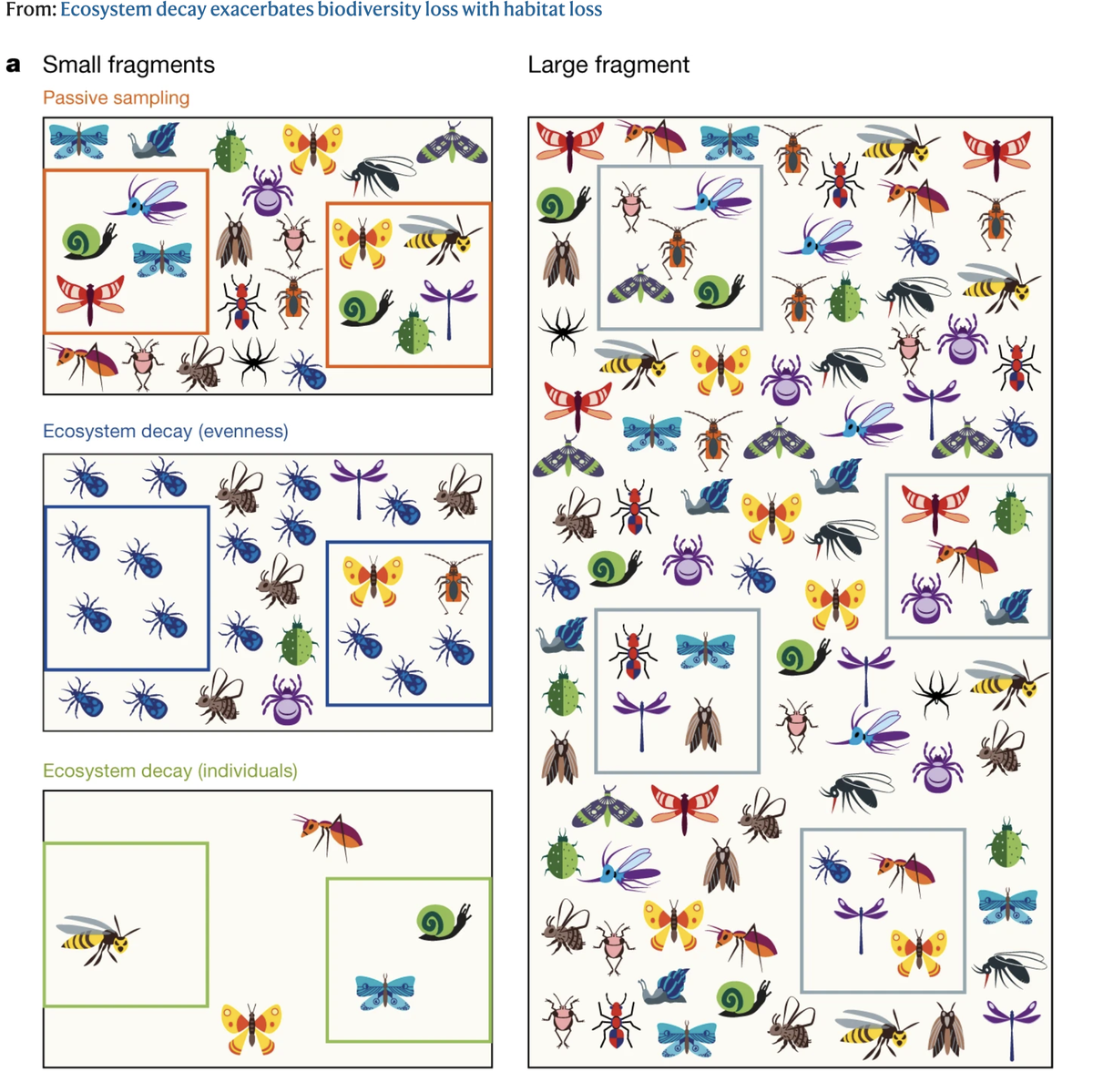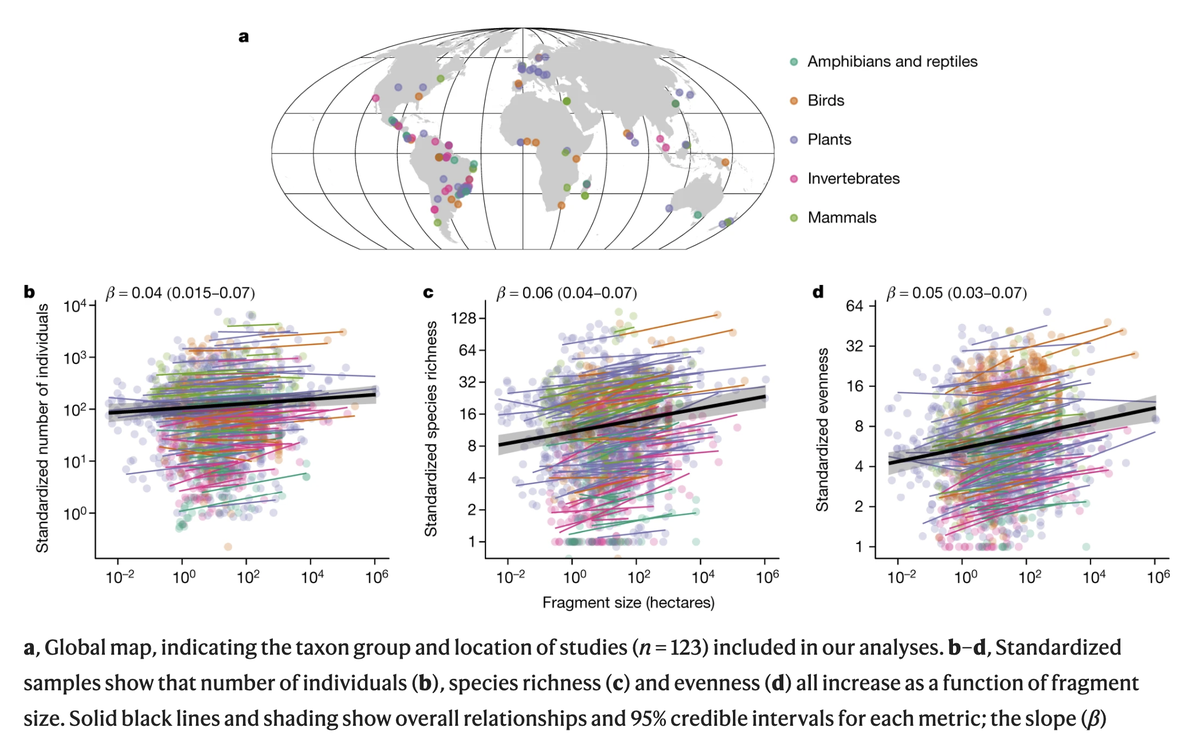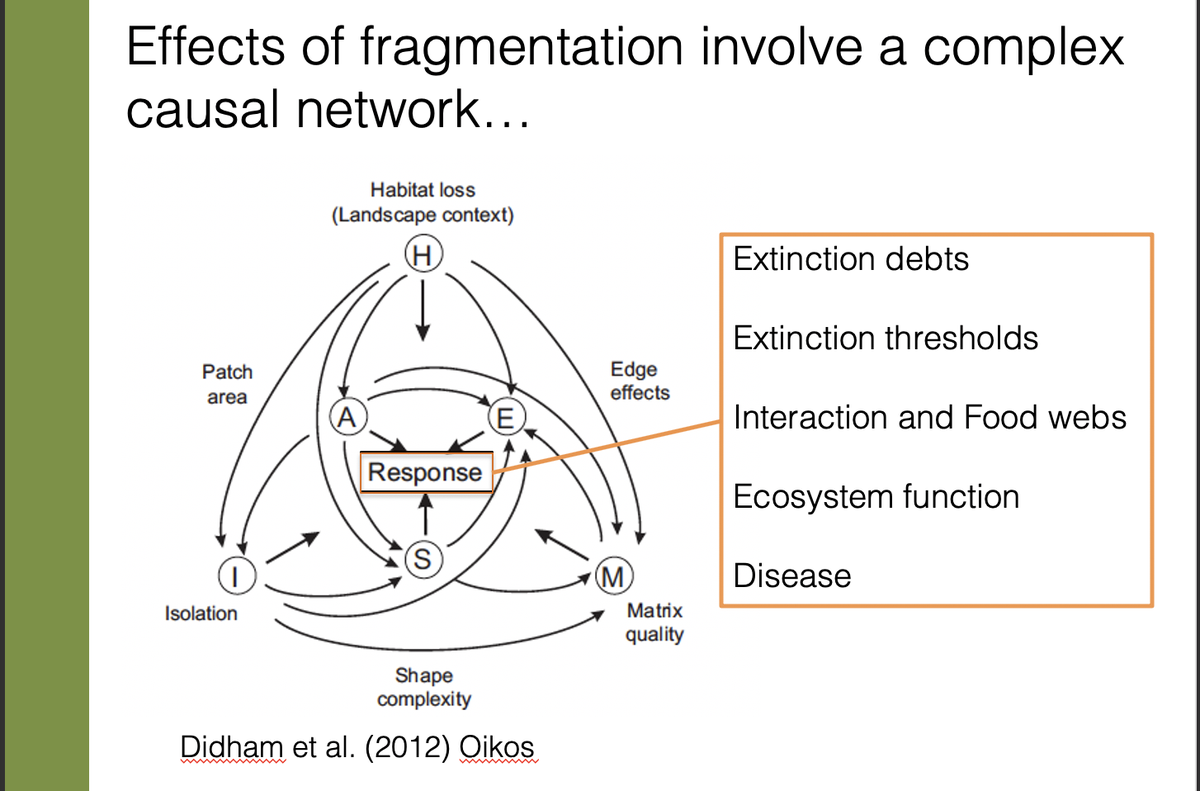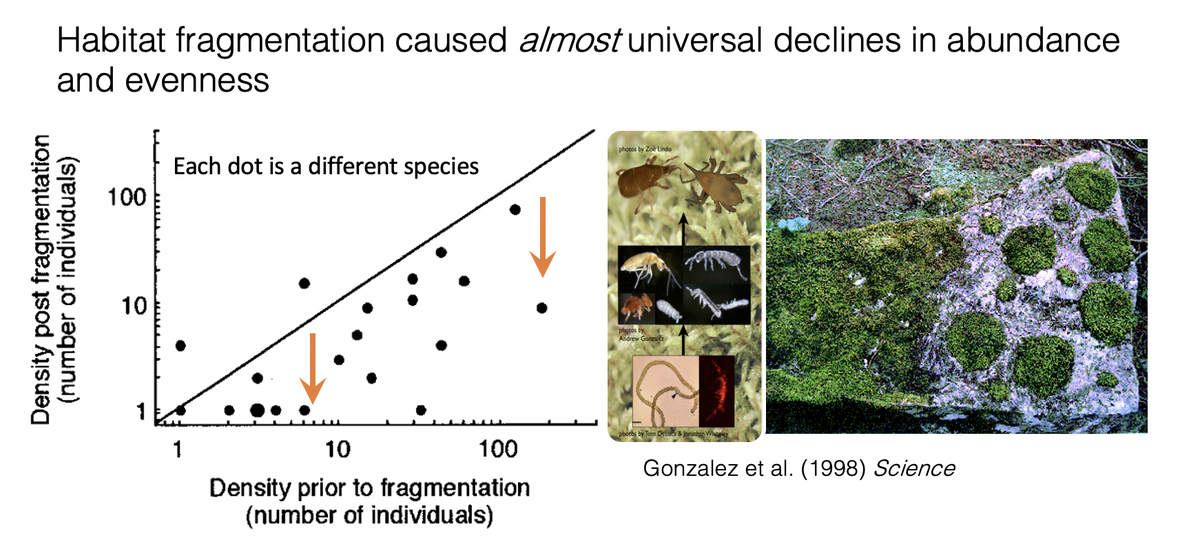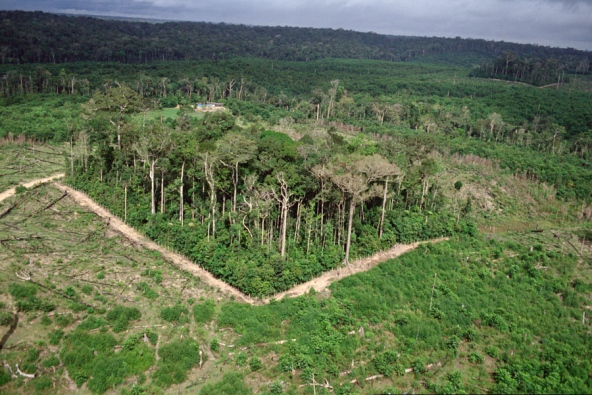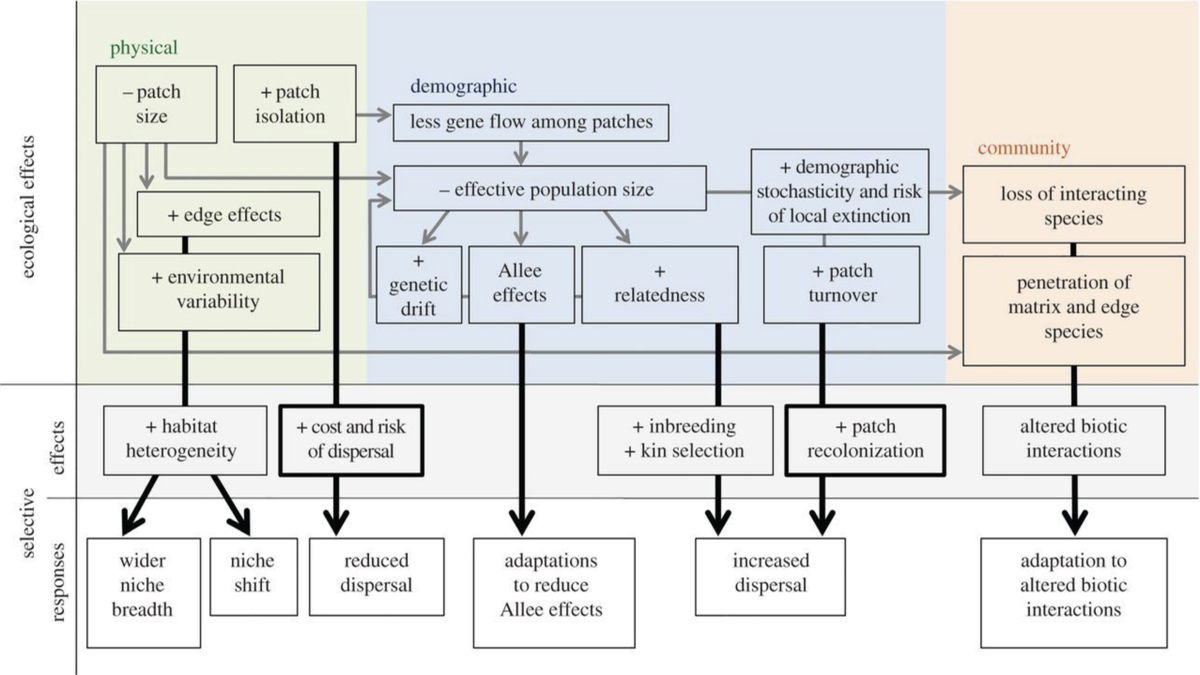Does habitat fragmentation cause passive #biodiversity loss, or, is it an ecological process of community decay?
Although hotly debated the data synthesis by @Jon_Chase88 et al. provides compelling evidence for decay.
https://www.nature.com/articles/s41586-020-2531-2
Although hotly debated the data synthesis by @Jon_Chase88 et al. provides compelling evidence for decay.
https://www.nature.com/articles/s41586-020-2531-2
The trick is to control for sampling effort: When you do this we can see that fragments "contain fewer individuals, fewer species and less-even communities than expected from a sample of larger fragments."
Over long time spans habitat fragments become habitat for other species and so fragments can accumulate species, especially as edges seal and communities restructure. This can take decades, but it is an important ecological outcome.
I can't say I am surprised by these results, but the synthesis is crucial at a time when the ecological community is assessing what it knows.
The effects of habitat fragmentation are complex and require sustained research. We have to link models, experiments, and surveys to understand what is happening in any given fragmented landscape.
I finished my PhD in 1998 ( ) convinced that these effects of habitat fragmentation were important. See figure.
) convinced that these effects of habitat fragmentation were important. See figure.
But evidence takes time to accumulate in science. The bottom line is that habitat fragmentation drives an ecologically active process that can be nonlinear and lagged.
 ) convinced that these effects of habitat fragmentation were important. See figure.
) convinced that these effects of habitat fragmentation were important. See figure.But evidence takes time to accumulate in science. The bottom line is that habitat fragmentation drives an ecologically active process that can be nonlinear and lagged.
Long-term studies like the iconic #BDFFP lead by Tom Lovejoy were an inspiration for so much work on habitat fragmentation. We are still learning from these experiments.
https://www.nature.com/news/forest-ecology-splinters-of-the-amazon-1.12816
https://www.nature.com/news/forest-ecology-splinters-of-the-amazon-1.12816
Another key issue is that #biodiversity change in habitat fragments ramifies through the system to affect ecosystem functioning and services. This was one of the key points of @nickmhaddad et al 2015 https://advances.sciencemag.org/content/1/2/e1500052
I am increasingly preoccupied with rapid evolution in fragmented landscapes. Does it happen...for sure...but the outcomes can depend on many interacting eco-evo processes as explained in this paper by Cheptou @AnnaLHargreaves @BonteDries Jacquemyn
https://royalsocietypublishing.org/doi/10.1098/rstb.2016.0037#.XyLhe9EX0dM.twitter
https://royalsocietypublishing.org/doi/10.1098/rstb.2016.0037#.XyLhe9EX0dM.twitter

 Read on Twitter
Read on Twitter